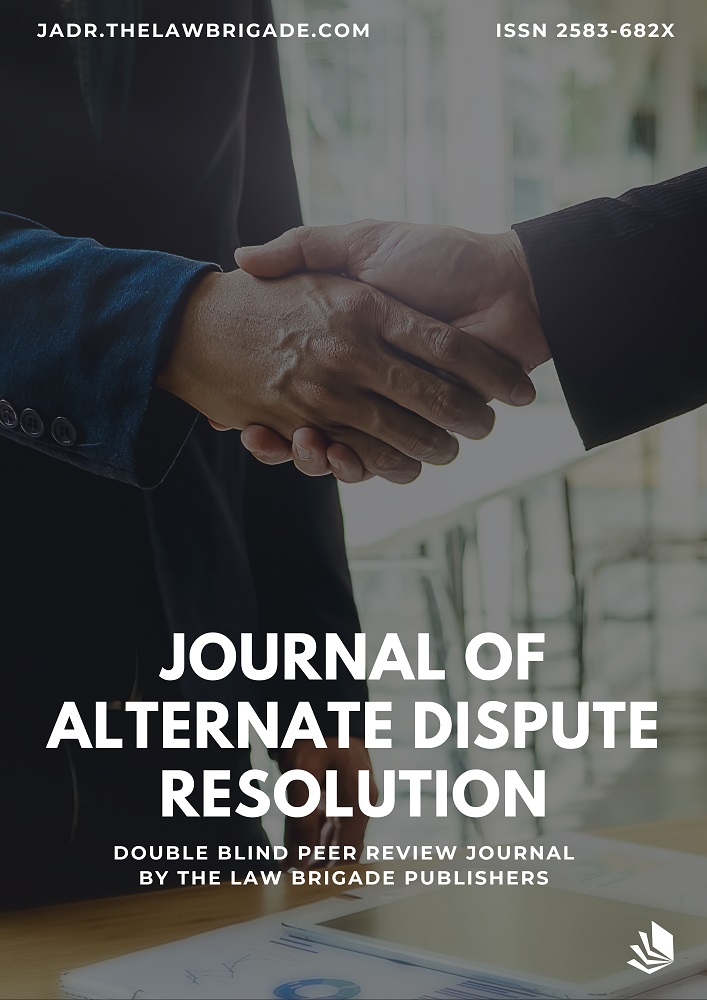Desire for affordable and quick justice is universal. Justice, a crucial aspect of any civilized society, intends to establish fairness, equity, and equal opportunities for all members or citizens. The Preamble of India reflects this goal with aspirations of “justice-social, economic, and political.” Article 39-A of the Constitution ensures equal access to justice. The administration of justice involves protecting the innocent, punishing the guilty, and resolving disputes satisfactorily. In India’s modern legal system, there has been a growing dependence on Alternative Dispute Resolution (ADR) mechanisms to address legal disputes outside of the traditional courtroom setting.
This study examines how ADR processes impact access to justice for marginalized communities. It uses a mixed-methods approach, analyzing ADR case outcomes. The research will begin by examining the historical development of ADR mechanisms and their integration into legal systems worldwide. The study will pay special attention to the potential benefits and challenges these mechanisms pose concerning access to justice, focusing on factors such as cost, efficiency, and inclusivity. Quantitative data will be collected from diverse ADR cases to assess their outcomes compared to traditional litigation. This research contributes to the ongoing discourse on the intersection of ADR and access to justice, providing practical recommendations for policymakers, legal practitioners, and scholars. The findings aim to inform the refinement of ADR frameworks to better address the diverse needs of individuals seeking justice outside the conventional legal system. The study’s results suggest that ADR can be a valuable tool for improving access to justice. However, the study highlights the difficulties in ensuring equal representation and participation. More work is needed to address the challenges that arise in implementing ADR mechanisms effectively. So, precisely saying, ADR aims to provide justice that not only resolves disputes but also harmonizes the relation of the parties.





